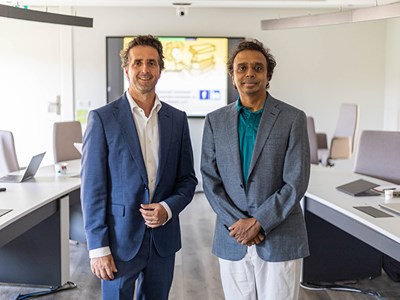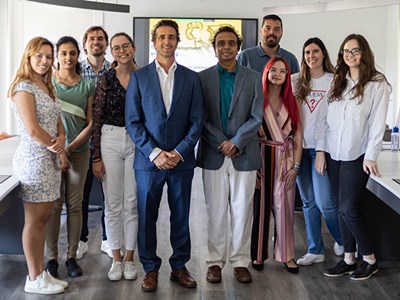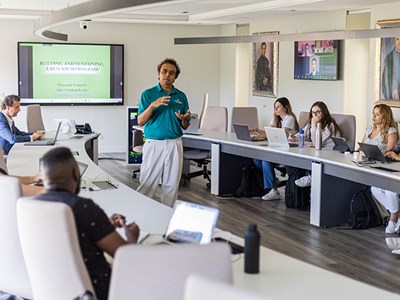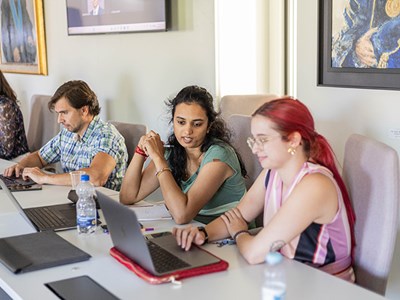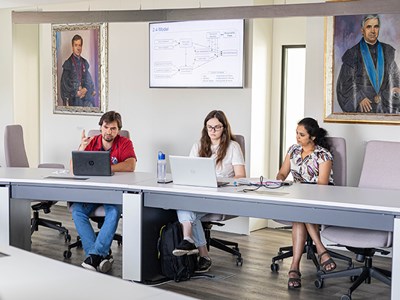Viswanath Venkatesh, who completed his PhD at the University of Minnesota in 1997, is an Eminent Scholar and Verizon Chair of Business Information Technology at the Pamplin College of Business, Virginia Tech. Since Fall 2021, he is also the Director of Pamplin’s Executive PhD program. He is also an affiliate faculty member at Virginia Tech India. He is widely regarded as one of the most influential scholars in business and economics, both in terms of premier journal publications and citations. His research focuses on understanding the diffusion of technologies in organizations and society. He has worked with several companies and government agencies. His most impactful project focuses on rural India and improving the quality of life of the poorest of the poor—which he has presented in various forums including at the United Nations. The sponsorship of his research has been about US$10M. His work has appeared in leading journals in human-computer interaction, information systems, organizational behavior, psychology, marketing, medical informatics, and operations management. Over various 5-, 10-, 15-, and 20-year periods (since 2001), he has been the most productive in terms of publications in the premier journals in information systems (i.e., Information Systems Research and MIS Quarterly) and best paper awards (e.g., Academy of Management Journal). His works have been cited over 161,000 times and over 55,000 times per Google Scholar and Web of Science, respectively, with an h-index of 87 and i-10 index of 143, with 19 papers being cited over 1,000 times per Google Scholar. He has been recognized to be among the most influential scientists (e.g., Clarivate, Thomson Reuters’ highlycited.com, Emerald Citations, SSRN, PLoS Biology). For instance, in a recent article in PloS Biology and annual updates (Iaonnidis et al. 2021), based on citation data from 1996 to 2021, he had career ranking for citation impact of 485th out of ~9 million scientists across all scientific fields and 1st in information systems—and he has been in the top-1000 out of ~9 million scientists across all scientific fields since the rankings were introduced in 2017. His annual citation impact rankings have been on or about the top-100 out of ~9 million scientists across all scientific fields since 2017. He has taught a wide variety of undergraduate, MBA, exec MBA, PhD, and executive education courses. Student evaluations have rated him to be among the best instructors at the various institutions, and he has received teaching awards at the school and university levels. In addition to his leadership role in Virginia Tech’s Executive PhD program, he has performed extensive administration and service including a long stint at Arkansas as the director of the information systems PhD program. He also plays a key role in Virginia Tech’s growing international programs (e.g., with Narsee Monjee Institute of Management Studies). In 2009, he launched an IS research rankings web site, affiliated with the Association for Information Systems (AIS), that has received many accolades from the academic community including AIS’ Technology Legacy Award. He has served in editorial roles in various journals including Management Science, MIS Quarterly, Information Systems Research, Journal of Operations Management, Journal of the Association for Information Systems, Organizational Behavior and Human Decision Processes, Production and Operations Management, and Decision Sciences Journal. He is a Fellow of the AIS and the Information Systems Society, INFORMS.


